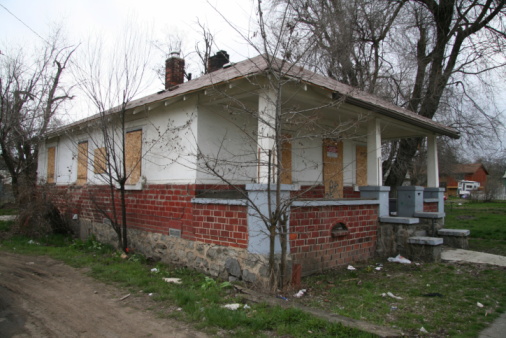

Sellers are already required to disclose hazardous substances and environmental concerns in their seller disclosure statements, so they would need to disclose meth production based on those issues. As a real estate licensee, if you are aware that a property was used in the manufacturing of meth, or you have a reasonable basis to suspect that it was and the seller hasn’t disclosed that information, you need to disclose that condition to the buyer. Buyer and seller agents who fail to disclose material defects they have “actual” knowledge of can be held liable under the Real Estate Seller Disclosure Law.
While a strong suspicion does not constitute actual knowledge, a jury may find the circumstantial evidence sufficient to find that actual knowledge existed. Further, as a buyer agent, you may wish to inform your client of the issue so the buyer can conduct an inspection for the presence of meth, or to check the address against the United States Drug Enforcement Administration’s National Clandestine Laboratory Registry to see if a property has been identified as methamphetamine production facility. This type of pre-emptive measure is similar to informing clients of their ability to check Megan’s Law, or when we advise of the problems with stucco or other issues that buyers may not suspect as potential problems.
Signs of a meth lab to be aware of:
- A strong chemical odor similar to cat urine and soiled baby diapers may be present.
- The presence of older model pick-ups, vans and rental/moving vans. Additional signs may include items being kept covered in the vehicles or chemical odors coming from the vehicles.
- Laboratory glassware, discarded pseudoephedrine or Sudafed boxes or other chemical containers.
Fortunately, Pennsylvania does not have the same level of methamphetamine use or manufacturing as many western and mid-western states, however law enforcement confirms the eastward movement of meth production. In 2005, 12 kilograms of meth were seized by federal agencies in Pennsylvania compared to Texas, which had a staggering 2,894 kilograms of meth seizures.
If you suspect a meth amphetamine lab do not investigate it yourself. Call your local police or the PA Office of the Attorney General for assistance. The attorney general’s office can be contacted at 717-787-3391.
Topics
Member Discussion
Recent Articles
-
Pennsylvanians Work 11 Days to Afford Monthly Mortgage
- March 6, 2025
- 1 min. read
On average, Pennsylvanians must work 11 eight-hour days to afford their monthly mortgage payment, compared to the national average of 14 days.
-
Realtor.com Names Mt. Lebanon Third Most Popular Neighborhood
- March 5, 2025
- 1 min. read
“Walkability to the centralized business districts throughout this charming neighborhood is one of its most attractive assets,” says RAMP President Michelle Senko.
-
Realtors® Reveal: Benefits of Selling Before Spring
- March 4, 2025
- 2 min. read
“I would say the biggest advantage of listing before the spring is the potential for less competition,” PAR First Vice President Eric Rehling shares.
Daily Emails
You’ll be the first to know about real estate trends and various legal happenings. Stay up-to-date by subscribing to JustListed.



